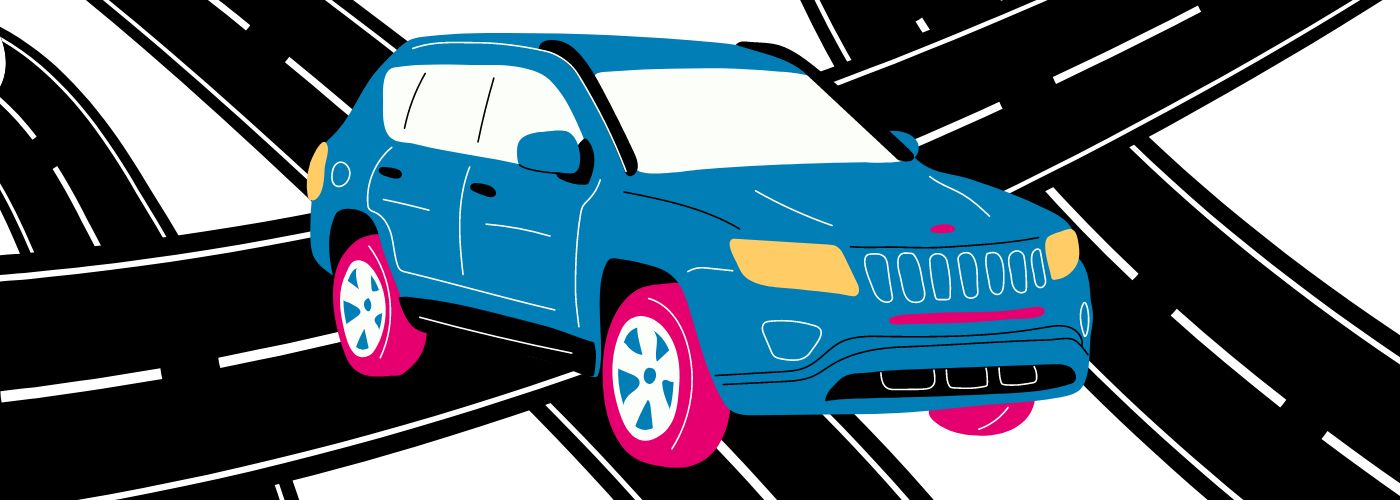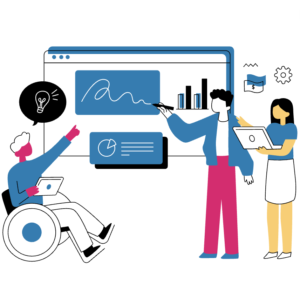Accessibility in the Auto Industry: Takeaways from Alan Hejl
Updated: July 6, 2022
Every month, we welcome a new guest to 3Play Media’s Allied Podcast. In May 2022, we met with accessibility leader Alan Hejl to discuss accessible vehicles and accessibility in the automotive industry.
Alan Hejl is the Accessibility Strategy Manager at General Motors and a disability justice advocate. Alan has a passion for bringing people together and connecting different skill teams to ensure people with disabilities are included in the automotive design process and promoting the accessibility of autonomous vehicles, electric vehicles, and beyond to be inclusive for all. He brings his work in accessibility advocacy to his community, providing guidance and advice to local businesses and government on meeting and exceeding ADA standards for the true inclusion of people with disabilities.
In his episode, Alan shared how General Motors works to make accessible vehicles for consumers with disabilities and how the company strives to create an accessible and inclusive culture for disabled employees.
Alan discussed GM Able, General Motors’ employee resource group for employees with disabilities, caregivers, and allies, and General Motors’ mission to be “the world’s most inclusive company.” He also shared about his advocacy in his local city of Ferndale, Michigan, and how we can all work towards making our products, companies, and communities more accessible.
The Future is Electric and Autonomous
A central aspect of inclusion is keeping disabled people at the forefront of innovation. For General Motors, innovation looks like electric and autonomous vehicles. General Motors is committed to an all-electric future with zero emissions and is making electric vehicles for all people. Additionally, the company is working on self-driving cars, which have enormous potential to impact people with disabilities positively.
However, for electric and autonomous vehicles to positively impact disabled consumers, they need to be accessible for drivers and passengers alike.
This need translates to a strategy of including people with disabilities at every stage of the design process. The work must be done, Alan said, by disabled engineers and disabled customer experience experts.
Alan also shared some examples of accessibility barriers in vehicles that can occur when disabled individuals are not included in every step of the design process, such as missing grab handles, inaccessible digital interfaces, rental car inaccessibility, and other mobility features.
There are additional accessibility considerations for electric vehicles, such as how to create an accessible charging process. Charging stations can be hard to access for people with mobility disabilities, and the weight of chargers and locations from parking spots can create further barriers.
Listen to Accessibility in the Auto Industry with Alan Hejl
A Low Tolerance for Injustice
Core to Alan’s episode was the concept of disability justice and advocacy. Accessibility has permeated all of Alan’s life, and he shared that he “has a low tolerance for injustice.” He intertwines his professional work at General Motors with his disability justice work in his local community of Ferndale, Michigan, where he advocates for accessibility beyond compliance across the city.
There were simple improvements, Alan said, that could be easily made if people with disabilities were included in the review process, such as curb cuts being placed too far from accessible routes.
Alan also shared multiple examples of inclusion over compliance, such as operating a sensory space at Ferndale Pride, one of the largest Pride festivals in Michigan. While laws don’t mandate sensory spaces, they are a critical accommodation for many people to feel welcome and comfortable.
“Having that experience of being able to interact with my community and fighting for accessibility on the front lines with just my local city government and local businesses, I’m able to build those experiences and funnel that lens in through General Motors and the work that I do,” Alan said. “And it also provides just a lot of passion and relief to me as well where, if I’m not able to get something through in accessibility at General Motors, I can come back to my community and I can help a restaurant get some low-top seating to mix in with their high-top seating on the side. And that, to me, helps really keep up my personal momentum of, there’s always wins to be had.”
To learn more about accessibility in the auto industry and Alan’s work at General Motors, listen to the Allied episode below or read the transcript:







